Discover 10 easy ways to detox your Indian home for better health. Create a safer, healthier haven for your family!
In today's fast-paced world, our homes should be havens of peace and wellness. But often,
they become unknowingly filled with pollutants that can impact our health. Think about the dust, chemicals in cleaning products, and even stale air!
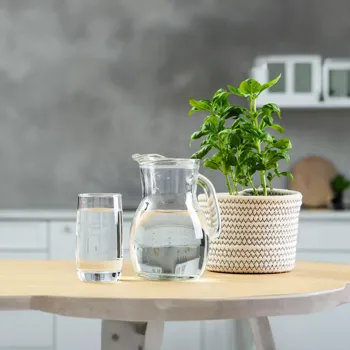
A home detox isn't about complicated cleanses; it's about simple changes to create a healthier, happier living space. This article will guide you through ten easy ways to detox your Indian home, promoting better health and well-being for your entire family.
After all, a healthy home leads to a healthy you!
Embrace Natural Cleaning Power:
Ditch those harsh chemical-laden cleaners! Many conventional cleaning products contain volatile organic compounds (VOCs) that can irritate your eyes, nose, and throat, and even contribute to long-term health problems. Instead, opt for natural cleaning solutions.
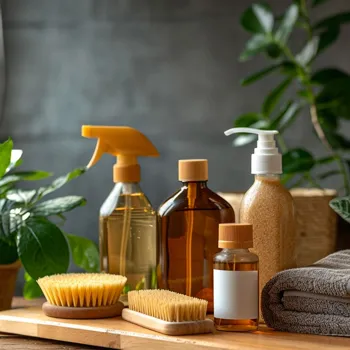
Vinegar, baking soda, lemon juice, and essential oils can be powerful and effective cleaning agents. For example, a mixture of vinegar and water works wonders on windows and mirrors. Baking soda is excellent for scrubbing sinks and ovens.
Lemon juice can disinfect cutting boards and eliminate odors.
Think about your bathroom cleaner that has chemicals. It could be harmful to your health. Now consider simple solution for your cleaning; baking soda can be used to clean the bathroom tiles.
Lemon that you use for cooking can also be used for cleaning! So, embrace the natural cleaning to make your home a safe haven for your family.
By switching to natural cleaning products, you can significantly reduce your exposure to harmful chemicals and create a healthier indoor environment.
Look for brands that are specifically labeled as "natural" or "eco-friendly," and always read the ingredient list. Even better, try making your own cleaning solutions – there are tons of recipes available online!
Remember to always test a small area before applying any cleaning solution to the entire surface, especially on delicate materials.
Air It Out Regularly:
Ventilation is key to maintaining good indoor air quality. Opening windows and doors, even for a short period each day, can help to circulate fresh air and remove stale, polluted air. This is especially important in kitchens after cooking, bathrooms after showering, and bedrooms after sleeping.
Aim to ventilate your home for at least 10-15 minutes each day, preferably during the cooler hours of the morning or evening to avoid bringing in excessive heat or dust.
In India, we often keep windows closed to keep out dust, heat, or noise. However, stagnant air can trap pollutants indoors.
Make it a habit to open windows and doors, even briefly, to flush out these pollutants and allow fresh air to circulate. Consider investing in air purifiers, especially if you live in a heavily polluted area, but remember that they are not a substitute for proper ventilation.
A regular sweep of the house will help to reduce the dust and keep the air fresh.
Proper ventilation helps to remove indoor pollutants such as dust mites, mold spores, pet dander, and VOCs released from furniture, paint, and other materials.
It also helps to regulate humidity levels, which can prevent the growth of mold and mildew. By simply opening your windows and doors daily, you can significantly improve the air quality in your home and create a healthier living environment for you and your family.
Declutter and Simplify:
Clutter isn't just visually unappealing; it can also harbor dust, allergens, and even pests. A cluttered home can also contribute to stress and feelings of overwhelm. Decluttering regularly can improve your mood and the air quality.
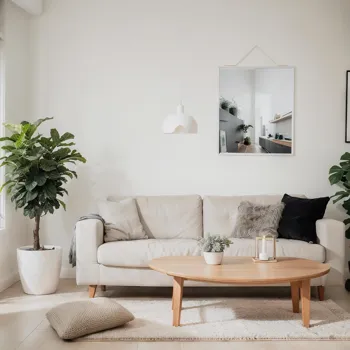
Go through each room in your home and get rid of items you no longer need, use, or love. Donate, sell, or recycle unwanted items instead of letting them accumulate dust.
Think about items that is sitting idle and is not getting use.
Start with one drawer or space at a, removing items like old newspapers, magazines, and unused containers. Clear your home as this can create a more open, relaxing environment and reduce allergen build-up. Reduce the clutter, reduce the dust! Make this easy step for a healthier home.
Simplify your decor by choosing a few key accent pieces rather than overwhelming your space with unnecessary items. Not only will this make cleaning easier, but it will also create a more peaceful and inviting atmosphere.
A minimalist approach can have a significant impact on your mental and physical well-being. This is very important for physical and phycological well being.
Embrace Indoor Plants:
Indoor plants aren't just decorative; they can also help to purify the air by absorbing pollutants and releasing oxygen. Certain plants are particularly effective at removing toxins such as formaldehyde, benzene, and xylene.
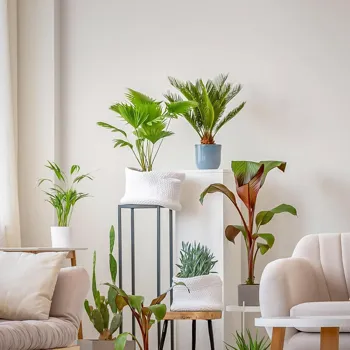
Some popular choices for Indian homes include snake plants, spider plants, aloe vera, and money plants. These plants are relatively easy to care for and can thrive in various indoor conditions.
When selecting indoor plants, be sure to research their specific needs with respect to light, water, and humidity. Place plants in well-lit areas, and avoid overwatering. Wipe down the leaves regularly to remove dust and ensure that they can effectively absorb pollutants.
In India, Tulsi plant is considered sacred in many homes and is also excellent air purifier.
Adding potted plants that needs minimal water will help in the long room. Place these plants in the living room or your workspace.
The amount of oxygen release from the plant will add a fresh element to the area reducing the stress from work. Plants add life to the space and contributes to better air quality which is good for health!
Choose Natural Bedding and Furniture:
Many conventional mattresses, pillows, and furniture are treated with chemicals such as flame retardants and stain repellents, which can release harmful VOCs into the air. Opt for natural and organic bedding and furniture made from materials such as cotton, wool, latex, or bamboo.

These materials are typically free from harmful chemicals and are more breathable, which can promote better sleep.
Look for certifications such as GOTS (Global Organic Textile Standard) or Oeko-Tex Standard 100, which indicate that the products have been tested for harmful substances.
When purchasing new furniture, consider buying solid wood pieces instead of particleboard or MDF, which can release formaldehyde. Allow new furniture to air out in a well-ventilated area for a few days before bringing it into your home.
Selecting natural products allows you to not only have quality product for use but is healthy to your body. Bedding that has cotton and mattress that is made of bamboo is the best way forward. When you choose good material for your body you get not only healthier body, you get a healthier future!
Control Moisture and Prevent Mold:
Mold thrives in damp environments and can cause a variety of health problems, including allergies, asthma, and respiratory infections. To prevent mold growth, it's important to control moisture levels in your home.

Repair leaky faucets and pipes promptly, and use exhaust fans in bathrooms and kitchens to remove excess moisture. Wipe down wet surfaces immediately, and ensure proper ventilation in areas prone to dampness.
In India, humidity levels can be high, especially during the monsoon season.
Consider using a dehumidifier to reduce moisture levels in your home. Clean and disinfect bathrooms and kitchens regularly to prevent mold growth. Inspect your home for signs of mold, such as musty odors or visible growth, and address any issues promptly.
Regularly check area around the plant to ensure there is not moisture. This can be a good practice to ensure there is no mold growth. In the humid areas, you can consider a dehumidifier for your master bedroom. Making these changes you can keep mold away and live a healthy life!
Filter Your Water:
Access for clean water is the first step to healthy living. Water contains contaminates such as lead and chloride which are harmful to health. Getting a regular purifier is a great way to filter the water you drink.
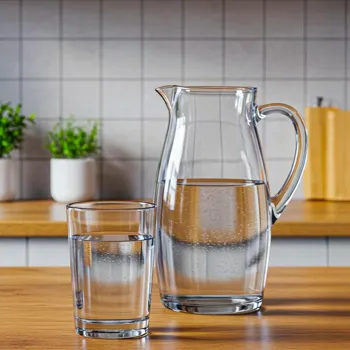
Most of the Indian hose make use of boil to treat the water they drink which kills the bacteria in the water. But using the modern water purifier can clean your water with minerals as well.
Filtered water is safe and it allows you to have clear water all the time.
Make sure to find a filter that suits you.
Use Air Purifier Regularity
Air purifier helps to remove all the particles and dust that accumulates in closed area. It helps with clearing the air.
They work by drawing air in through a series of filters that trap pollutants, allergens, and odors, releasing cleaner air back into the room.
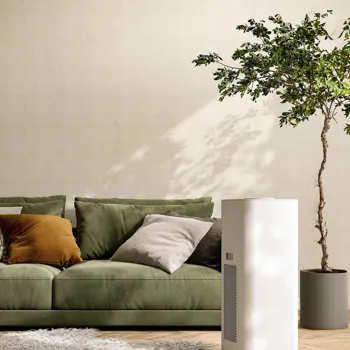
The filters need cleaning and replacing regularly so that the air purifier keeps giving you the best performance.
This is the best practice to follow to keep your air clean. Buy the air purifier for the right sized room.
Clean Your Carpets and Rugs
Carpets and Rugs tend to gather dust and that dust tend to stay there for quite a while. It is important to regularly clean them.
You can use vacuum cleaner to do the cleaning. Using vacuum cleaner would allow you to easily remove dirt and dust.

Wash your rugs and carpets in regular interval to ensure they are clean.
Maintain electronic items Regularity
Clean your electronic items with microfiber cloth. Check the internal components.
This helps to remove dust and also helps in cleaning electronics.
This is the best way to keep the electronics clean and keep your electronic items detox to keep it safe.
















